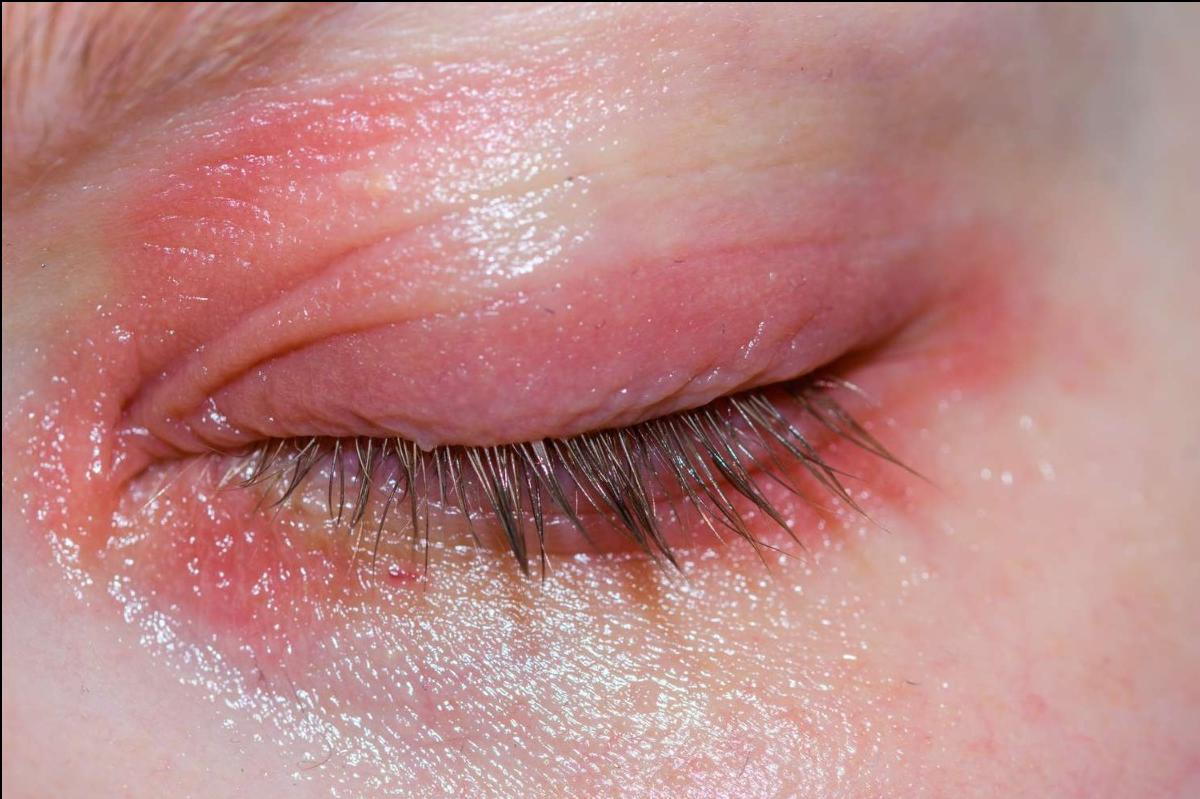Read Our Blog

Tea Tree Oil: A Natural Approach to Soothing Eye Irritations
- posted: Feb. 20, 2024
Blepharitis, an inflammation of the eyelids, is a common condition that can be exacerbated by the presence of Demodex mites. These microscopic parasites, when overpopulated, may contribute to the development of blepharitis, causing discomfort and irritation. In this blog post, we'll explore the potential benefits of tea tree oil in managing Demodex-related blepharitis, shedding light on its natural properties that may offer relief for those dealing with this eye condition.
Understanding Demodex Blepharitis
Demodex mites, naturally occurring on human skin, can inhabit the eyelash follicles and oil glands around the eyes. However, when their population increases, it may lead to symptoms of blepharitis, including redness, itching, burning sensations, and crusty eyelids. Traditional treatments often involve eyelid hygiene and prescription medications, but recent attention has turned to the potential of tea tree oil in managing Demodex-related blepharitis
Tea Tree Oil's Antimicrobial and Anti-Inflammatory Properties
Tea tree oil, extracted from the leaves of the Melaleuca alternifolia tree, is renowned for its antimicrobial and anti-inflammatory properties. These characteristics make it a promising candidate for addressing Demodex-related issues on the eyelids. The active compound, terpinen-4-ol, exhibits antimicrobial effects, potentially helping to control the population of Demodex mites, while its anti-inflammatory properties may alleviate the discomfort associated with blepharitis.
Applying Tea Tree Oil for Demodex Blepharitis
Dilution is Key: Before applying tea tree oil to the eyelids, it is crucial to dilute it properly to prevent irritation. Mix a few drops of tea tree oil with a gentle carrier oil, such as coconut or jojoba oil, ensuring a safe and suitable concentration for the delicate eye area. Alternatively, see your eye care provider for options of pre-mixed and pre-diluted options.
Eyelid Cleansing: Use a cotton swab or pad to gently apply the diluted tea tree oil solution to the eyelid margins. This process can help cleanse the area, potentially reducing Demodex mite populations and alleviating symptoms of blepharitis.
Consistency is Key: Tea tree oil is most effective when used consistently. Incorporate it into your daily eyelid hygiene routine, being mindful of any signs of irritation. If irritation occurs, discontinue use and consult with an eye care professional.
Cautions and Considerations
While tea tree oil holds promise for managing Demodex-related blepharitis, caution should be exercised. Direct contact with the eyes or using undiluted tea tree oil can lead to irritation, redness, and discomfort. Individuals with pre-existing eye conditions or allergies should consult with an eye care professional before attempting any home remedies
Tea tree oil's natural properties make it an intriguing option for managing Demodex-related blepharitis. When used responsibly, with proper dilution and consistency, tea tree oil may provide relief from the symptoms associated with this condition. However, it's essential to consult with an eye care professional for personalized advice and to ensure that the chosen approach aligns with individual eye health needs. As with any eye-related concerns, seeking professional guidance ensures the best possible care for your eyes.
If you're experiencing any changes to your vision, inflammation, or other irritations, contact Family Vision Center today.

Tea Tree Oil: A Natural Approach to Soothing Eye Irritations
- posted: Feb. 20, 2024
Blepharitis, an inflammation of the eyelids, is a common condition that can be exacerbated by the presence of Demodex mites. These microscopic parasites, when overpopulated, may contribute to the development of blepharitis, causing discomfort and irritation. In this blog post, we'll explore the potential benefits of tea tree oil in managing Demodex-related blepharitis, shedding light on its natural properties that may offer relief for those dealing with this eye condition.
Understanding Demodex Blepharitis
Demodex mites, naturally occurring on human skin, can inhabit the eyelash follicles and oil glands around the eyes. However, when their population increases, it may lead to symptoms of blepharitis, including redness, itching, burning sensations, and crusty eyelids. Traditional treatments often involve eyelid hygiene and prescription medications, but recent attention has turned to the potential of tea tree oil in managing Demodex-related blepharitis
Tea Tree Oil's Antimicrobial and Anti-Inflammatory Properties
Tea tree oil, extracted from the leaves of the Melaleuca alternifolia tree, is renowned for its antimicrobial and anti-inflammatory properties. These characteristics make it a promising candidate for addressing Demodex-related issues on the eyelids. The active compound, terpinen-4-ol, exhibits antimicrobial effects, potentially helping to control the population of Demodex mites, while its anti-inflammatory properties may alleviate the discomfort associated with blepharitis.
Applying Tea Tree Oil for Demodex Blepharitis
Dilution is Key: Before applying tea tree oil to the eyelids, it is crucial to dilute it properly to prevent irritation. Mix a few drops of tea tree oil with a gentle carrier oil, such as coconut or jojoba oil, ensuring a safe and suitable concentration for the delicate eye area. Alternatively, see your eye care provider for options of pre-mixed and pre-diluted options.
Eyelid Cleansing: Use a cotton swab or pad to gently apply the diluted tea tree oil solution to the eyelid margins. This process can help cleanse the area, potentially reducing Demodex mite populations and alleviating symptoms of blepharitis.
Consistency is Key: Tea tree oil is most effective when used consistently. Incorporate it into your daily eyelid hygiene routine, being mindful of any signs of irritation. If irritation occurs, discontinue use and consult with an eye care professional.
Cautions and Considerations
While tea tree oil holds promise for managing Demodex-related blepharitis, caution should be exercised. Direct contact with the eyes or using undiluted tea tree oil can lead to irritation, redness, and discomfort. Individuals with pre-existing eye conditions or allergies should consult with an eye care professional before attempting any home remedies
Tea tree oil's natural properties make it an intriguing option for managing Demodex-related blepharitis. When used responsibly, with proper dilution and consistency, tea tree oil may provide relief from the symptoms associated with this condition. However, it's essential to consult with an eye care professional for personalized advice and to ensure that the chosen approach aligns with individual eye health needs. As with any eye-related concerns, seeking professional guidance ensures the best possible care for your eyes.
If you're experiencing any changes to your vision, inflammation, or other irritations, contact Family Vision Center today.
Locations
Office & Optical Hours
Office Hours
Monday, Tuesday, Friday
9:00 am - 5:30 pm
Wednesday, Saturday
8:30 am - 3:00 pm
Thursday
9:00 am - 7:00 pm
Sunday
Closed
Optical Hours
Monday, Tuesday, Friday
9:00 am - 4:30 pm
Wednesday, Saturday
8:30 am - 2:00 pm
Thursday
9:00 am - 6:00 pm
Sunday
Closed


